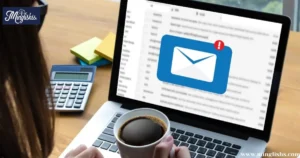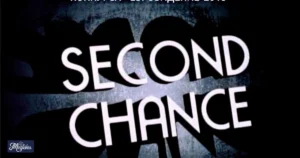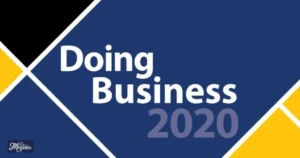“Explore sophisticated alternatives to inquire about scheduling preferences.”
In professional settings, clear and courteous communication is key, especially when arranging meetings or appointments. One common way to ask about someone’s availability is by using the phrase, “What time works best for you?” While this is polite and functional, there are several formal alternatives that can convey the same message with a touch of sophistication. Using varied language in formal communications can enhance your professionalism and adapt to different contexts.
Offering alternative ways to phrase this question can be particularly useful in settings where a more polished tone is appropriate. Whether you are scheduling a business meeting, coordinating with clients, or organizing a professional event, selecting the right wording can reflect your attention to detail and respect for the other party’s schedule. This blog will provide you with 25 formal alternatives to “What time works best for you?” to help you communicate effectively and professionally.
Understanding how to vary your language in formal communications can improve your interactions and ensure clarity. Each alternative phrase provided here is designed to suit different contexts, allowing you to choose the most appropriate expression based on the formality of the situation and the relationship with the recipient.
25 Formal Alternatives
1. “Could you kindly indicate your preferred time for this meeting?”
Scenario: When Emily was scheduling a high-stakes presentation with a potential client, she used this formal phrasing to ensure clarity and professionalism.
Explanation: This phrase is polite and formal, asking the recipient to specify a convenient time, reflecting respect for their schedule.
Additional Tip: Use this in formal business settings where clarity and politeness are crucial.
2. “Please let me know your availability for a meeting.”
Scenario: Mark was coordinating a project meeting with several team members and used this phrase to accommodate everyone’s schedules.
Explanation: This expression is formal and direct, asking the recipient to provide their available times, which facilitates scheduling.
Additional Tip: Suitable for situations where you need to gather availability from multiple participants.
3. “At your convenience, could you inform me of a suitable time for our discussion?”
Scenario: Sarah used this phrase when scheduling a detailed project discussion with a senior executive to show respect for their time.
Explanation: This phrasing emphasizes the recipient’s convenience and politely requests information on a suitable time.
Additional Tip: Ideal when you want to convey respect for the recipient’s busy schedule.
4. “Could you please specify a time that is convenient for you?”
Scenario: Laura used this expression in an email to a client to arrange a consultation, ensuring she was considerate of their availability.
Explanation: This formal request seeks to identify a time that suits the recipient, demonstrating politeness and flexibility.
Additional Tip: Best used when aiming for a polite and accommodating tone.
5. “Please advise me on a time that aligns with your schedule.”

Scenario: Tom used this formal phrasing to schedule a strategic meeting with an important partner, ensuring that it fit their availability.
Explanation: This phrase politely asks the recipient to suggest a time that works for them, aligning with their schedule.
Additional Tip: Effective for high-level meetings where aligning schedules is critical.
6. “Could you provide me with your preferred time slot for this meeting?”
Scenario: Emily used this phrase to coordinate a conference call with a colleague in a different time zone.
Explanation: This formal request asks for a specific time slot, which helps in planning and avoids ambiguity.
Additional Tip: Useful when you need precise timing for scheduling.
7. “When would be the most convenient time for you to meet?”
Scenario: Mark used this phrase in a formal email to schedule a client meeting, focusing on their convenience.
Explanation: This question asks the recipient to choose a time that best fits their schedule, showing consideration for their convenience.
Additional Tip: Ideal for formal communications where respect for the recipient’s schedule is important.
8. “Please let me know a time that would work best for our meeting.”
Scenario: Sarah used this phrase when organizing a meeting with stakeholders to ensure the time suited everyone involved.
Explanation: This expression is straightforward and formal, asking the recipient to suggest a time that works best.
Additional Tip: Suitable for formal settings where efficiency and clarity are needed.
9. “Could you indicate a time that suits you for our discussion?”
Scenario: Laura used this phrasing to arrange a follow-up discussion with a vendor, showing flexibility and formality.
Explanation: This phrase requests the recipient to specify a suitable time, emphasizing politeness and respect.
Additional Tip: Use this when you need to accommodate the recipient’s schedule.
10. “Please inform me of a time that is most suitable for you.”
Scenario: Tom used this formal request to arrange a strategy session with a partner, highlighting his respect for their schedule.
Explanation: This phrasing asks the recipient to provide a time that best fits their schedule, showing consideration.
Additional Tip: Effective for high-stakes meetings where professional tone is essential.
11. “Can you please suggest a time that works for you?”
Scenario: Emily used this phrase in a formal meeting request to a potential investor, aiming for clear and polite communication.
Explanation: This request asks for a time suggestion, making it easy for the recipient to respond with their availability.
Additional Tip: Ideal for straightforward scheduling needs.
12. “Please let me know a convenient time for you to meet.”
Scenario: Mark used this phrase in his email to coordinate a session with a new client, emphasizing their convenience.
Explanation: This formal request seeks to determine a time that fits the recipient’s schedule, showing respect for their time.
Additional Tip: Suitable for formal communications where recipient’s convenience is a priority.
Professional Ways to Say “This Is to Inform You”
13. “At your earliest convenience, could you provide a suitable time for our meeting?”
Scenario: Sarah used this phrase to arrange an urgent meeting with a team leader, stressing the need for promptness.
Explanation: This phrase combines formality with a request for timely response, making it suitable for urgent matters.
Additional Tip: Use this for scheduling meetings where a quick response is needed.
14. “Please specify a time that would be most convenient for our appointment.”
Scenario: Laura used this phrasing to schedule an appointment with a busy executive, aiming to be accommodating.
Explanation: This request is formal and precise, asking for a time that is most convenient for the recipient.
Additional Tip: Best for formal appointments where exact timing is important.
15. “Could you provide your availability for a meeting at your convenience?”
Scenario: Tom used this phrase in a professional follow-up to request the recipient’s available times.
Explanation: This phrase seeks to gather information on availability, emphasizing flexibility and respect.
Additional Tip: Ideal for formal communications where flexibility is needed.
16. “When would you prefer to schedule our meeting?”
Scenario: Emily used this phrase in a formal email to a colleague, ensuring that the meeting time suited their preference.
Explanation: This question is formal and direct, asking for the recipient’s preferred timing for scheduling.
Additional Tip: Use this when you want to prioritize the recipient’s preferences.
17. “Could you please inform me of a time that works best for you?”
Scenario: Mark used this phrase in a formal request to arrange a crucial meeting with a client.
Explanation: This phrasing politely requests information on the best time for the recipient, ensuring clarity.
Additional Tip: Effective for situations where politeness and clarity are important.
18. “Please let me know your most convenient time for a discussion.”
Scenario: Sarah used this formal phrasing when arranging a detailed project discussion with a senior manager.
Explanation: This phrase is polite and formal, asking for a time that is most convenient for the recipient.
Additional Tip: Best for formal discussions where accommodating the recipient’s schedule is crucial.
19. “Could you kindly suggest a time that aligns with your schedule?”
Scenario: Laura used this expression when coordinating a collaborative meeting with multiple stakeholders.
Explanation: This formal request seeks to align the meeting time with the recipient’s schedule, showing respect.
Additional Tip: Ideal for meetings involving multiple parties or stakeholders.
20. “Please provide a time that is convenient for you to meet.”

Scenario: Tom used this phrase to schedule a one-on-one meeting with a team member, ensuring their convenience.
Explanation: This formal request is straightforward and polite, asking for a convenient meeting time.
Additional Tip: Suitable for individual meetings where recipient’s convenience is key.
21. “Can you let me know a suitable time for our conversation?”
Scenario: Emily used this phrasing to arrange a strategic discussion with a business partner.
Explanation: This phrase is formal and requests the recipient to specify a suitable time for a conversation.
Additional Tip: Effective for professional conversations where formality is required.
22. “Please inform me of a time that best fits your schedule for our meeting.”
Scenario: Mark used this formal request when scheduling a project kickoff meeting with key stakeholders.
Explanation: This request emphasizes finding a time that fits well with the recipient’s schedule.
Additional Tip: Best used when scheduling high-priority meetings or appointments.
23. “Could you specify a time that works best for you at your earliest convenience?”
Scenario: Sarah used this phrase to urgently schedule a meeting with a client, emphasizing promptness.
Explanation: This formal request combines urgency with respect for the recipient’s timing preferences.
Additional Tip: Ideal for urgent scheduling needs where prompt responses are needed.
24. “Please let me know a time that would be most convenient for our meeting.”
Scenario: Laura used this formal expression to schedule a follow-up meeting with a business associate.
Explanation: This phrase is respectful and formal, asking the recipient to indicate a convenient meeting time.
Additional Tip: Use this when you need to ensure that the meeting time is suitable for the recipient.
25. “Could you kindly indicate your availability for a discussion at your convenience?”
Scenario: Tom used this phrase when organizing a strategic planning session with senior management.
Explanation: This request is formal and courteous, asking for availability while considering the recipient’s convenience.
Additional Tip: Best for high-level meetings where respect and formality are paramount.
Pros and Cons
Pros:
- Enhanced Professionalism: Using formal alternatives demonstrates a polished and respectful approach.
- Clarity in Communication: Providing varied phrasing helps avoid misunderstandings and ensures clear scheduling.
- Flexibility: Offers multiple ways to accommodate different scheduling needs and contexts.
Cons:
- Potential Overuse: Overusing formal phrases may come across as insincere or overly rigid.
- Complexity: Some formal phrases may be too complex or verbose for simpler communications.
- Cultural Differences: Certain formal expressions may not be suitable in all cultural contexts.
Conclusion
Choosing the right way to ask “What time works best for you?” can significantly impact your professionalism and clarity in communication. By utilizing these formal alternatives, you can ensure that your scheduling requests are both respectful and effective.
Each phrase provides a refined approach to accommodating the recipient’s schedule, enhancing the overall quality of your professional interactions. Tailor your choice based on the context and the formality of the communication to achieve the best results.

Hi, I’m Isabel: I’m passionate about turning language learning into a fun adventure. I believe in making every word exciting and memorable.










